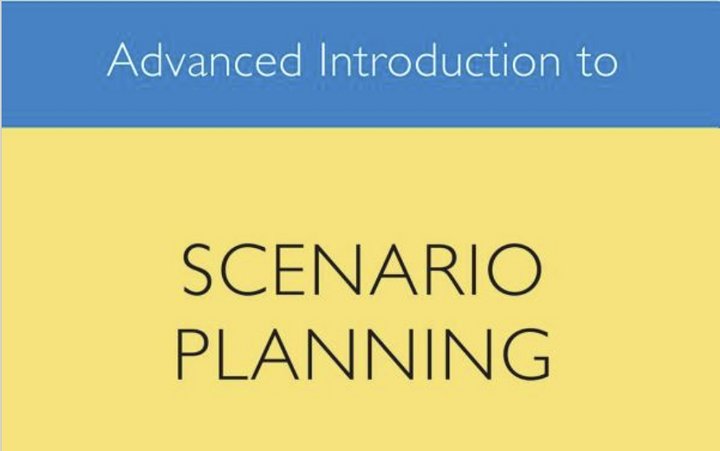The crisis caused by COVID-19 challenged risk managers more than ever before. After all, in such a situation, it was necessary to prove whether the risk management systems in the companies and banks were effective. The central question is: What can risk managers do differently to be better prepared for such challenges? Intuitively, the answer might be "nothing." After all, no one could have seen this pandemic coming, let alone predicted it. Nevertheless, the answer is not satisfactory, because everyone knows that crises can happen again and again.
The answer to the central question lies in scenario planning and scenario analysis. Practice shows that many companies and, in some cases, banks rely on just one forecast path for planning and for forecasting earnings and losses. However, this is not sufficient. Agreeing on a single development or a consensus opinion on how the future will develop certainly has its appeal. This is because it is easy to understand. Finally, the path can be communicated to others in a straightforward manner.
Paul J. H. Schoemaker published the book "Advanced Introduction to Scenario Planning" this year. He is a pioneer in the field of decision sciences. Paul Schoemaker was one of the first to combine the practical ideas of decision theory, behavioral economics, scenario planning, and risk management into a set of strategic decision-making tools for managers.
Paul Schoemaker's new work is essential reading for scenario planning. The book is primarily about how to respond to uncertainty, complexity, and the unknown. The author makes a case for deepening learning and challenging deeply ingrained, taken-for-granted approaches and models for strategy, action, and decision making. With its ten sections, the book is effortlessly accessible to general readers.
Schoemaker states at the outset that "this book has at least two distinct audiences" (p. 1). One audience includes advanced practitioners and academics who already know a great deal about scenario planning. They will use this book as a concise reference for their work because of its familiar terrain of keen observation and uncanny clarity. The second chapter in particular provides a wealth of examples of how people have been thoroughly wrong about the future. The detailed chapters on scenarios in various disciplines, such as the life sciences, are peppered with practical and theoretical background information that prepares for or follows the case at hand.
The second target group is students, managers, executives, professionals and experts from other disciplines. They may be looking for a deeper exploration of the subject. The book can be a focused and engaging read for them as well.
Schoemaker does a good job of describing the utility of scenario thinking using an analogy - mountain climbing. Mountaineering is about anticipating serious life-or-death mistakes. When planning a climbing trip, it is often not clear whether a single route is the shortest or the easiest, depending on various circumstances, such as weather conditions. In such cases, the overall best option may actually be a suboptimal route. While the best route in any given scenario (i.e., set of circumstances) may not be immediately apparent, it may become obvious when comparing scenario options. The best route may be between and not within a scenario.
Of course, it is not sufficient to simply run through the probabilities. This is because identifying risks in scenarios is a social process. Several groups of actors should be involved in this process. Experts are needed who can put the result of scenario planning and analysis into an understandable and actionable form. The goal must be to tell a continuous story. In Section 5, Schoemaker contrasts different scenario narratives. Learning to curate and tell stories based on scenarios makes it easier to step into an uncertain future. Care must be taken to place the scenarios in an appropriate context. Visualization techniques can effectively support "storytelling" based on scenarios.
In summary, "Advanced Introduction to Scenario Planning" is a very good introduction to the field of scenario planning. In its 176 pages, the work provides a comprehensive background history, a summary of the necessary tools and also the biases mentioned above. For scenario planning, it is one of the few publications that provide a solid introduction to the subject. It is useful for students new to scenario planning as well as long-time academic practitioners such as managers in various industries looking for a refresher or a handy text.
Scenario planning will not prevent shocks from occurring in the future-nothing can. But scenarios can raise our awareness and help us consider the various options. In any case, we would be prepared. Given the data and tools at our disposal, the only limitation in constructing scenarios is our imagination.
This shifts the concept of risk management from a disciplinary and backward-looking practice with narrowly defined technical expertise based on natural science to a forward-looking and forward-looking practice. It also provides knowledge leadership and strategic advice to top management without the need for elaborate calculations. In any case, Schoemaker offers deep insights into his long-standing area of expertise and encourages critical thinking.
Paul J. H. Schoemaker (2022): Advanced Introduction to Scenario Planning. Cheltenham, UK: Edward Elgar Publishing.
More information
Author:
Dr. Silvio Andrae




